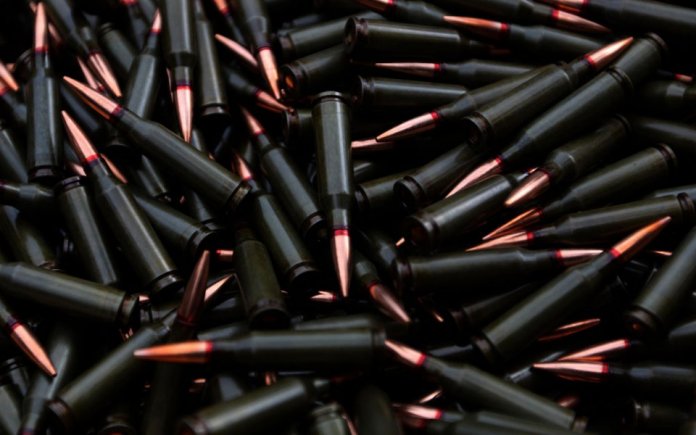Underground markets siphon billions of dollars from the global economy every year. But besides the thriving drug, gun and human trafficking, there are many small but highly lucrative products that don't immediately spring to mind when thinking about the black market.
Here are the top 7 amazing things, services, and animals for sale on the black market.
7. Puppies
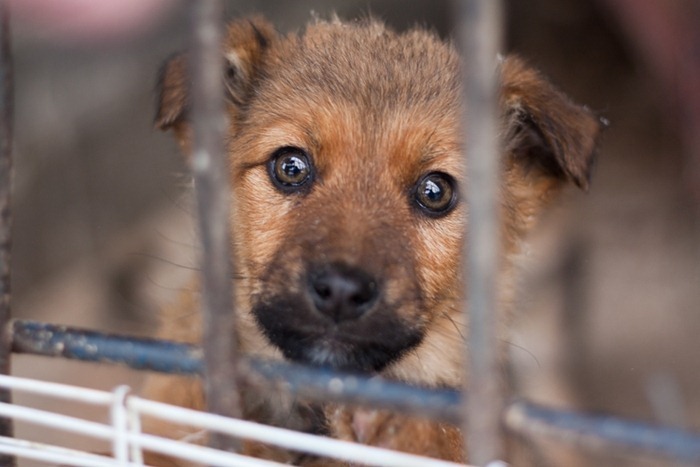 Puppies popular designer breedssuch as chorkies (Chihuahua + Yorkshire Terrier) can bring up to 2,000 euros to a breeder, but illegally they can be purchased much cheaper.
Puppies popular designer breedssuch as chorkies (Chihuahua + Yorkshire Terrier) can bring up to 2,000 euros to a breeder, but illegally they can be purchased much cheaper.
Of course, the conditions in which these animals are kept by dealers are deplorable. Dead animals remain in cages to rot along with living ones, and puppies are sold without vaccinations and microchips.
6. Scientific work
 Over the past few years, more than 1,000 prominent Russians have been convicted of plagiarizing scientific papers. In 2013, a network of activists emerged calling itself Dissernet. It uses software to detect plagiarism in dissertations, and has collected over 5,600 copies of plagiarism to date and has published reports on over 1,300 of them. Even Vladimir Putin was accused of plagiarism while writing his Ph.D. thesis, part of which was allegedly rewritten from the article "Strategic Planning and Policy" by Professors William King and David Cleland.
Over the past few years, more than 1,000 prominent Russians have been convicted of plagiarizing scientific papers. In 2013, a network of activists emerged calling itself Dissernet. It uses software to detect plagiarism in dissertations, and has collected over 5,600 copies of plagiarism to date and has published reports on over 1,300 of them. Even Vladimir Putin was accused of plagiarism while writing his Ph.D. thesis, part of which was allegedly rewritten from the article "Strategic Planning and Policy" by Professors William King and David Cleland.
5. Amber
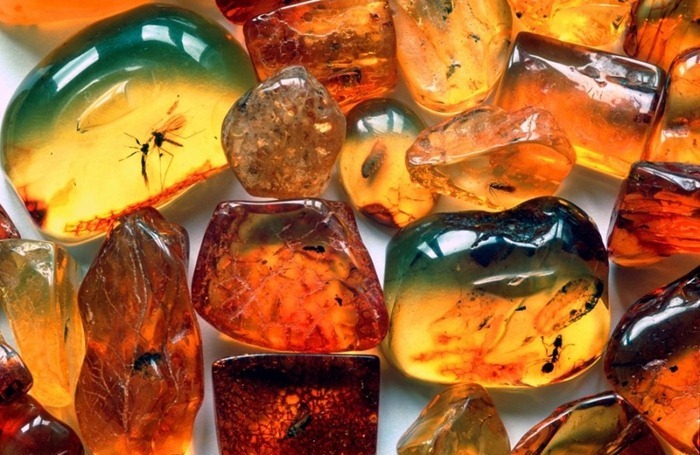 The world amber market exceeds $ 1 billion per year, and 90% of the world's reserves are located in the Kaliningrad region. Flawless pieces are literally worth more than their weight in gold, and if an insect is found in amber, the stone can be valued at five or six figures.
The world amber market exceeds $ 1 billion per year, and 90% of the world's reserves are located in the Kaliningrad region. Flawless pieces are literally worth more than their weight in gold, and if an insect is found in amber, the stone can be valued at five or six figures.
4. Tiger body parts
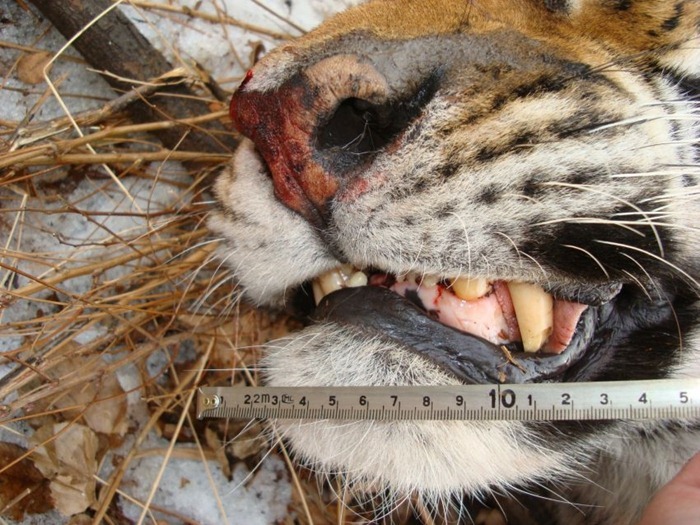 Previously, this product was mainly used for medicinal purposes, but now the focus has shifted to luxury goods such as tiger skins and wine made from tiger bones. For its production, the skeleton of a tiger is soaked in rice wine.
Previously, this product was mainly used for medicinal purposes, but now the focus has shifted to luxury goods such as tiger skins and wine made from tiger bones. For its production, the skeleton of a tiger is soaked in rice wine.
In the west of Thailand, there is the Tiger Monastery, home to several tigers (as well as over 300 other animals). A former monastery worker said that chips, which all tigers must have according to Thai law, are often carved and the tigers are illegally sold. Subsequent investigation revealed that many of the animals from the monastery were missing, while others were without microchips.
3. Manuka honey
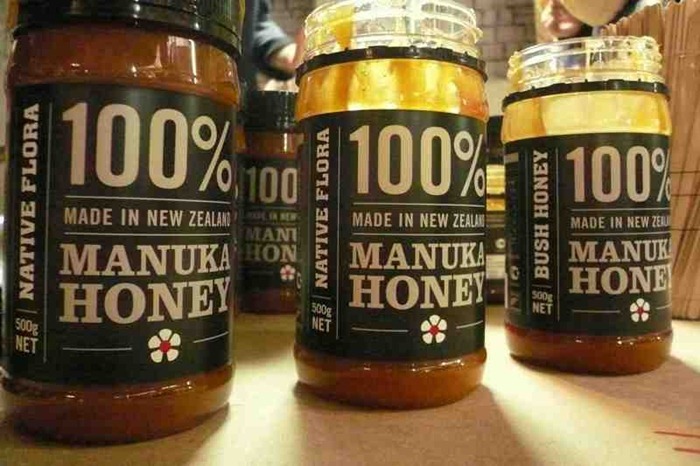 Ranked as the most popular black market honey, this honey is produced only in New Zealand and Australia. A can of manuka honey costs $ 80. Recently, it has become very desirable due to its (not proven by official medicine) medicinal and antibacterial properties. The indigenous tribes of New Zealand used this honey to dress wounds.
Ranked as the most popular black market honey, this honey is produced only in New Zealand and Australia. A can of manuka honey costs $ 80. Recently, it has become very desirable due to its (not proven by official medicine) medicinal and antibacterial properties. The indigenous tribes of New Zealand used this honey to dress wounds.
Organized gangs of thieves simply brazenly steal the product from wherever they can. Supermarkets and other retail outlets in Sydney, Australia have seen a huge spike in coordinated thefts of dozens of cans of manuka honey.
2. Rabies vaccines
 In China, rabies claims thousands of lives every year. Unsurprisingly, there is a thriving trade in cheap vaccines on Taobao (the Chinese equivalent of eBay). They are created in unknown laboratories by unknown persons, and range from only partially effective to outright fraudulent.In 2016, authorities arrested dozens of individuals suspected of distributing rabies vaccines. Profits from the black market vaccine trade were about $ 90 million.
In China, rabies claims thousands of lives every year. Unsurprisingly, there is a thriving trade in cheap vaccines on Taobao (the Chinese equivalent of eBay). They are created in unknown laboratories by unknown persons, and range from only partially effective to outright fraudulent.In 2016, authorities arrested dozens of individuals suspected of distributing rabies vaccines. Profits from the black market vaccine trade were about $ 90 million.
1. Pangolins
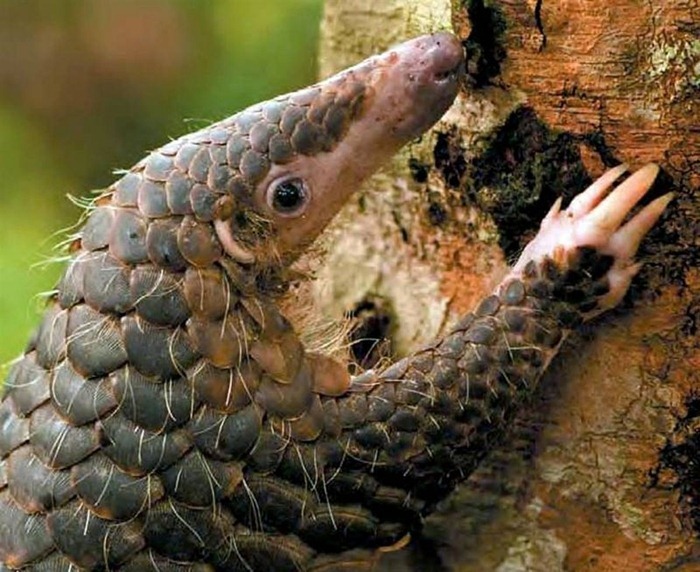 If you've never heard of pangolins, then you are not alone. These small mammals live in Southeast Asia and sub-Saharan Africa, lead a solitary, nocturnal lifestyle, and would continue to exist quietly if not for their large horny scales covering the body. They are appreciated all over the world for their medical and cosmetic applications, and are also used as a delicacy in some cultures.
If you've never heard of pangolins, then you are not alone. These small mammals live in Southeast Asia and sub-Saharan Africa, lead a solitary, nocturnal lifestyle, and would continue to exist quietly if not for their large horny scales covering the body. They are appreciated all over the world for their medical and cosmetic applications, and are also used as a delicacy in some cultures.
Only one shipment, seized by Hong Kong police in June 2016, was estimated to be worth more than $ 1 million by the black market, and this is the tip of the money iceberg of the illegal pangolin trade. According to the International Fund for the Protection of Animals, pangolins are the most illegally exported mammals in the world.

